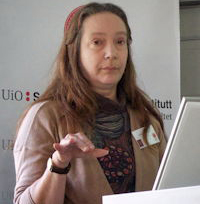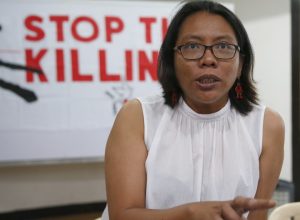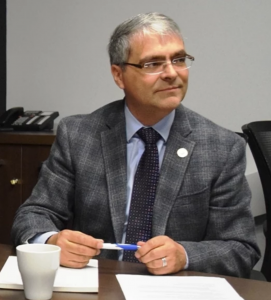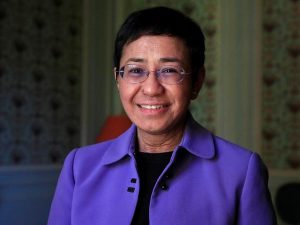Human rights advocates urge Canada for stronger measures against PH authoritarian rule
Human rights advocates urge Canada for stronger measures against PH authoritarian rule

iningWatch Canada’s
Catherine Coumans
Mila Astorga-Garcia
The Philippine Reporter
Advocates who testified before the recent parliamentary hearing on the human rights situation in the Philippines urged Canada to end its “quiet diplomacy” with the government of Philippine President Rodrigo Duterte, as the country “further descends into an authoritarian rule.”
Some implored that Canada implements strong measures including suspending its funding, cooperation and other supports — such as military funding, training and cooperation and sales of military goods — which have been allegedly linked to human rights abuses.
The four advocates who raised concerns on rights violations testified before the House of Commons Standing Subcommittee on International Human Rights, May 4, 2021, were Karapatan secretary general Cristina Palabay; Rappler’s, CEO Maria Ressa who testified as an individual; MiningWatch Canada’s Catherine Coumans; and International Coalition on Human Rights in the Philippines –Quebec co-chairperson Guy-lin Beaudoin.
“We implore the Canadian government to take action on these concerns with urgency as our country further descends into an authoritarian rule,” Palabay said.

Karapatan secretary general Cristina Palabay
In her testimony, Palabay charged that the Philippine government’s counterinsurgency campaign had already killed 15 human rights workers of Karapatan and 394 civilians, mostly indigenous and environmental activists.
“Many more defenders face judicial harassment including myself for trumped-up charges based on perjured testimonies, planted evidence or fabricated grounds…women human rights defenders are among those killed, arrested and detained,” Palabay said.
“We eat death, rape and threats of sexual violence everyday, online and offline. Community pantries and kitchens, relief and fact-finding missions, universities, journalists, doctors, lawyers, church people members of the opposition, the Commission on Human Rights, and many more, received what UN Special Rapporteur Mary Lawlor called context-specific death threats in the form of red-tagging,” Palabay added.
“I emphasize – these occur in the context of government’s counterinsurgency policy, with it whole nation approach in stemming the armed rebellion in the country,” Palabay said.
“In our view, this is a murderous campaign in violation of the principle of distinction between civilians and combatants under international humanitarian law and a militarist and strongman approach which trumps civilian authority and interest,” she asserted.

nternational Coalition on Human Rights in the Philippines –Quebec co-chairperson Guy-lin Beaudoin
Despite all these, victims of human rights abuses seeking justice from the courts are usually denied legal protection, and only find themselves in more harmful situations, she explained.
“We are among those who sought legal protection – and our colleagues were killed, we continue to be threatened and harassed and a reprisal suit is brought before us. No perpetrator has been persecuted nor convicted in all the cases I mentioned,” Palabay testified.
MiningWatch’s Coumans urged the Canadian government to hold accountable Canadian mining companies operating in the Philippines for their operations that cause detrimental impacts only to the environment, but also to human lives.
Coumans, who worked with human rights defenders affected by Canadian mining operations in the Philippines – the last 22 years with MiningWatch Canada as Asia-Pacific Coordinator – said that she had testified as early as 2005 before the same House of Commons Committee about documented abuses suffered by the indigenous Subanon of Mindanao involving TVI Pacific, which she cites as relevant issues to what was being brought up again in the hearing.
“Some I witnessed myself on visiting their place, including forced relocation, TVI’s use of paramilitary forces to set up roadblocks to control access of community members and food to the village…and using funds provided by the Canadian Embassy to reward villagers who agreed to cease their opposition to the mine,” Coumans cites in her testimonial notes.
She said that the Committee then had prepared a strong report unanimously endorsed by the Subcommittee and Standing Committee asking that an investigation be made on the detrimental impact of the mining project on the indigenous rights and human rights of the people and the environment, but the Canadian government at that time had declined to investigate.
She urged that “Canada should not be selling military equipment and providing defense support and cooperation to the Philippines. Canada needs to mandate its consular staff to protect human rights. “

Rappler’s CEO Maria Ressa
Rappler co-founder and executive editor talked about the “weaponization of the law” to go after human rights defenders, including journalists like her, citing the 10 arrest warrants against her, including charges of tax evasion and a cyber-libel conviction; and the detention of another journalist Frenchie Mae Cumpio.
She urged Canada and the international community to continue on calling out the alleged anti-human rights policies of the Philippine government.
Quebec lawyer Beaudoin called on the Canadian government to suspend all its support to the Philippine government’s anti-terrorism and counterinsurgency programs.
In view of the urgent human rights situation, the following specific recommendations to the Subcommittee were cited by Beaudoin, reiterating the positions of co-witnesses Palabay and Coumans. The Subcommittee was urged to in turn make these recommendations to the Government of Canada.
• authorize the Canadian Embassy to expedite visa and provide resources to assist the temporary relocation to Canada or other countries human rights defenders whose lives are in imminent danger;
• suspend Canada’s bilateral and multilateral support, funding and cooperation related to the Philippine counter-terrorism and counter-insurgency programs a including military funding, training and cooperation, and sales of military goods;
• adopt a human rights criteria when reviewing and making decisions on Canada’s support, funding and cooperation with the current Philippine government such as ensuring accountability, investigation and prosecution of commanding officials who order, commit or aid extrajudicial killings and other human rights violations;
• practice public transparency in Canada’s support programs for the Philippines;
• impose specific sanctions, such as denying entry into Canada of particular civilian, military and police officials who order, commit or aid extrajudicial killings and other human rights violations; and
• call on President Duterte to end the counter-insurgency program to resume the peace talks with the rebels.
The Subcommittee is expected to make a report to the Canadian Government, after which the latter is expected to officially respond to the recommendations.
Comments (0)